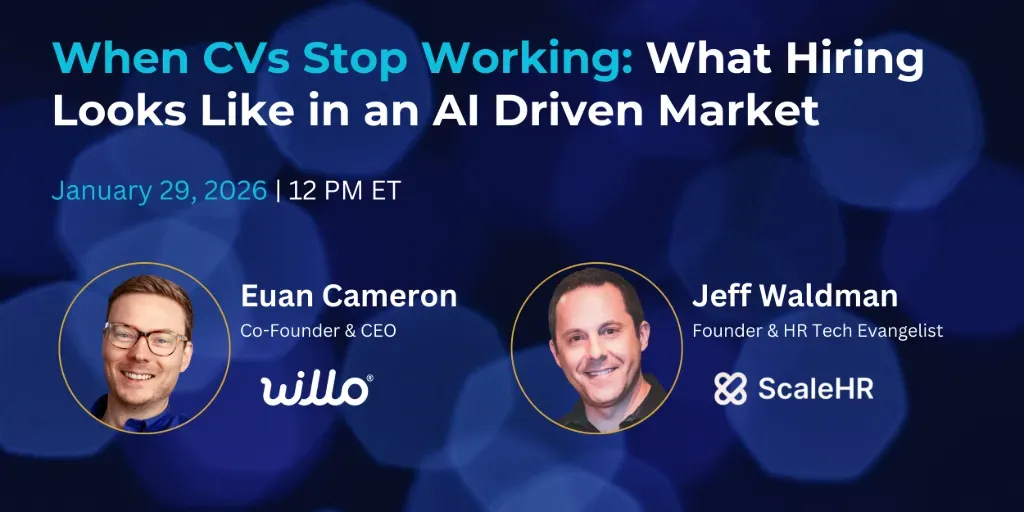At Willo, October means one thing. No, not Pumpkin Spice Latte season or scary movies - Dyslexia Awareness. The Month of October is Dyslexia Awareness Month, where organisations and businesses across the globe raise awareness and highlight the continued efforts to make the world as accessible as possible to people with dyslexia.
In a recent article featured in the Huffington Post, our co-founders Euan and Andrew talk about their experiences having dyslexia, how this has influenced their career to date and ultimately, how it inspired Willo. Huffington Post dyslexia and hiring.
It is estimated that over 1 in 10 people have dyslexia, making it one of the most common learning difficulties present in the UK workforce. Dyslexia primarily affects the skills involved in reading and spelling. Leading to difficulties with spelling words correctly, reading and writing speed, and confusion of letters and their correct order. People with dyslexia process information differently, uniquely approaching problem-solving tasks. LinkedIn has recently recognised “dyslexic thinking” as a skill that their users can now add to their profile alongside more traditionally recognised skills such as leadership or Microsoft excel. Though it may seem small, this move is a massive step forward in recognising the incredible and unique strengths dyslexic thinkers have; it’s time the recruitment process caught up.
With such a high prevalence of the condition amongst the current workforce, and numerous studies outlining how dyslexia can put individuals at a disadvantage during the hiring process, not much has changed in the typical recruitment model in over 60 years.
- Find a job ad.
- Apply for the job with a CV and Cover Letter.
- The recruiter reviews CV and Cover Letter.
- Invites “top” candidates for interview.
- The position is filled.
The crucial step in this process, which here at Willo believe is outdated, is the need for a CV and cover letter. Indeed reports that the average recruiter only spends 6-7 seconds reviewing a CV, with over 80% being discarded in this initial review. Often for issues such as spelling mistakes or poor grammar, common areas people with dyslexia struggle with. Discounting someone because of one A4 piece of paper without letting them shine or show their full potential means employers miss out on a whole host of untapped talent.
At Willo, we believe there is a better way to interview people, putting everyone on as even footing as possible. Our innovative platform allows you to set video interviews for candidates instead of CV submissions. Which they can do in their own time, and you can review when best suits you. To make our platform as accessible as possible, we ensure that text is stripped back and utilise both written and audio queues to help individuals get the most out of their interviews. Utilising a video interviewing platform such as Willo can greatly help neurodivergent people during the job interview process. Allowing their skills to be showcased holistically without the barrier of a CV holding them back and fostering a more accessible and inclusive interview process.



%20(2%20of%205).jpg)


